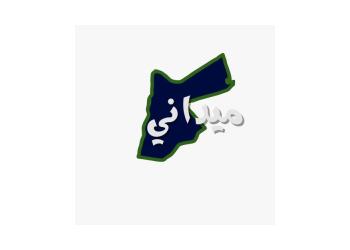Digital technology fuels both oppressive governments and Media Freedom in Arab world

While technology has made a considerable contribution to media throughout the globe, it has had a unique impact in the Arab world. But this impact has not always been positive. Until the mid-1990s, radio and television stations that Arabs were able to follow were mostly government owned. With the exception of international radio stations such as BBC, Voice of America and Monte Carlo radio, hundreds of millions of Arabs were forced to hear and see protocol news of their presidents and kings leading and dominating newscasts. Governments dominated audiovisual media so much that representatives of presidents and kings had an office at the local radio and TV stations for ease of passing on information and to the state owned and run media. Live interviews were not allowed for fear that something unscripted could be said. Governmental control of radio and TV had its logic in the history of governance in many Arab countries. In the post decolonization phase, many Arab countries witnessed armed revolts and military coups. In most of these revolts, radio stations were among the first institutions, after the presidential palace, to be taken over by the new powers. Knowing full well the power of the airwaves, the new rulers made sure no one else took them over physically or in terms of content. Newspapers, which by their nature had a narrower audience except among the literate residents of major cities, still had governmental controls, either directly or indirectly. External media was only allowed in the country after a thorough read by customs minders who, at times, would either deny entry or physically cut out a particular article that was not pleasing to the local rulers. That was the situation for most Arab countries, with the exception of Lebanon, Kuwait and Egypt. But the information revolution forced a lot of change. Some of the change was in the form of totally new media outlets, in other cases the IT revolution had its trickle effects within traditional media outlets as well as helped develop an alternative media landscape that is among the main forces of change in the Arab world today. TV was among the first media to change due to the information revolution. While governments could control their own media and prevent printed publication from entry, their ability to stop the airwaves, especially with the introduction of satellite television, was impossible. Al Jazeera was born in this atmosphere. Digital Technology Fuels both Oppressive Governments and Media Freedom in Arab World Technology changed the history of media in Arab countries by offering alternatives to government controlled communications. The Qataris, who were looking for a way to be known, stumbled on a failed attempt by Saudi businesspeople to produce a joint effort with the BBC. The failed Orbit News operation in Italy provided the Qataris with a cadre of professionally trained Arabic speaking journalists. With little critical news to report on in tiny Qatar, the new station was able to deliver professional news by satellite to the entire Arab world. The Internet provided yet another opportunity for Arab news junkies. As it happened, all 23 Arab countries were careful about making sure that the local press was under control but could do little to stop any other Arab media outlet from writing about them. With cyberspace outside the control of Arab interior and information ministers, an entirely new opportunity was opened up. One of the first efforts began in Palestine. The Arabic Media Internet News (AMIN.org) was established in 1996 with the aim of publishing uncensored content. Their most successful effort was a section informing their visitors of the websites of other Arab newspapers. By accessing these Arab newspapers, Web surfers were able to find out what was happening in their countries simply by reading what Arab papers outside their own borders were publishing. Online publications soon followed and in time provided opposition parties, ideological groups and various others with the opportunity to make their ideas public. With Internet penetration still low in most Arab countries, it was important to employ the ripple effect. Internet media advocates in the Arab world began by trying to encourage Arab journalists, thinkers and writers to get online. Various civil society efforts helped by purchasing computers with Internet connections and providing public space to allow amplifying voices to obtain information online and then reproduce it using traditional media. The success of this effort wasn’t initially evident, but its online power was soon to be seen in efforts to establish alternative media outlets and in citizen media initiatives. Initially the Internet was left under lock and key in traditional newspapers as owners were afraid of this newcomer to the information world. But with time, the availability of information, which provided a wider point of view and a much deeper version than what was being said locally, caused traditional media owners and editors to adopt and warm up to the Internet. Alternative and citizen media initiatives were soon growing in the Arab world. When Mahmood Al Yousifi (mahmood.tv) used Google Earth to show the amount of unused land owned by the ruler and unavailable to homeless citizens, the Bahrain government temporarily banned Google Earth. When Egyptian blogger Wael Abbas got hold of a cell phone video showing police brutality he posted it on his site (Misrdigital.blogspirit.com), forcing for the first time the Egyptian government to try and convict the policeman in the posted video. Tunisian blogger Sami Ben Gharbieh, with the help of friends and plane-spotting websites such as airliner.net and planepictures.net, was able to show how the president’s jets made frequent visits to major European capitals between 2001-2007 for the Tunisian first lady’s shopping trips, asthe autocratic president of Tunisia rarely leaves the country. These individual efforts broke a lot of taboos but also brought governmental wrath that has included frequent arrests and restrictions on bloggers, as well as a variety of nasty efforts against these citizen journalists. But these brave early bloggers became role models for many and paved the way for more established and sustainable alternative media operations. One of these efforts took place in Jordan, when the first online radio station in the Arab world was established to counter the country’s governmental radio monopolies. While AmmanNet.net was established in the fall of 2000 and was focused primarily on local news, it found that its live broadcasts on pro Palestinian demonstrations during the Second Intifada were also of interest to Palestinian FM radio listeners. When Palestinian stations downloaded the signal from the Internet and broadcast it terrestrially, Jordanians were able to hear the broadcast on their car radios and transistors. The Internet was thus instrumental in helping break up a governmental monopoly and eventually opened the way for the licensing of independent and private radio stations. Facebook and Twitter gave alternative media activists yet another opportunity to circumvent government controls. When the education minister in Jordan made some nasty remarks in his opposition to attempts by public servants to create a teacher’s union, a Facebook group was formed calling for the minister’s resignation and within hours attracted thousands of fans. A Jordanian version of twitter (watwet.com) was instrumental in helping AmmanNet to spread breaking news through free SMS messages to thousands of cell phone owners. The success of media entrepreneurs in using the Internet to circumvent government controls was not without a strong governmental response in most Arab countries. While some countries applied strict proxy restrictions banning locally produced content from being seen by the country’s citizens, or carried out brutal crackdown actions, the majority of the Arab regimes decided to join the revolution. When it became clear that they couldn’t totally stop many alternative websites, Arab governments decided to either co-opt existing sites or create their own sites camouflaged as independent sites. In some cases, money was made available, as well as tantalizing local news and various other efforts to give these government sites the appearance of alternative media. Oppressive governments also used a number of other ways to clamp down on alternative media. Bloggers and media owners faced various bureaucratic problems that included travel bans, imprisonment and in some cases physical punishment. Bad mouthing bloggers and spreading false rumors became the norm in many countries. Governments that depend on large funds from external countries encouraged journalists and other bloggers to attack these independent media activists by claiming that their foreign funding rendered their efforts unpatriotic. While the jury is still out on whether the IT revolution has strengthened or weakened media freedom efforts, it is clear that there are opportunities, especially for young Arabs who are the majority of the population. While technology has provided the vehicle, the future of free media in the Arab world will require a mix of professionalism, courage and alliance-building. Journalists will have to steer clear of yellow journalism and muster the courage to take on governments and interest groups that prefer to operate in the dark.














































